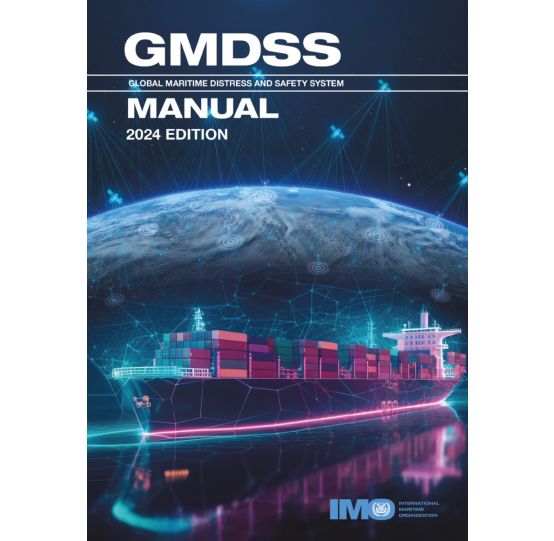GMDSS Manual, 2024 Edition
The GMDSS Manual provides, in a single comprehensive publication, an explanation of the principles upon which the GMDSS is based, including the radiocommunication requirements and recommendations for its implementation, the operational performance standards and technical specifications to be met by GMDSS equipment, and the procedures for and method of operation of the various radio services that form the GMDSS and the Master Plan for the GMDSS.
The 2024 edition contains the latest information emanating from the IMO project on the modernization of the GMDSS, which was completed in 2022 and led to the overall revision of relevant SOLAS regulations and many other mandatory and non-mandatory IMO instruments related to the GMDSS. This edition also includes:
? An introduction to the GMDSS, including a description of the GMDSS concept;
? A description of the components of the GMDSS, carriage requirements and operational procedures;
? Detailed information regarding terrestrial and satellite-based radiocommunication systems used in the GMDSS;
? Information concerning ongoing work at IMO related to future radiocommunication systems and services;
? Information on promulgation of maritime safety information and search and rescue related information, including NAVTEX and enhanced group call services;
? Excerpts from the relevant SOLAS regulations for the GMDSS;
? Supporting IMO resolutions relevant to the GMDSS;
? The current GMDSS Master Plan, giving the details of the coastal infrastructure and services provided by Member States; and
? Extracts from the ITU-R Radio Regulations giving the radio regulatory background.
The Manual is intended for use by ship personnel, shore operators, trainers, administrations, regulators and anyone concerned with ship radiocommunications.
As a specialised agency of the United Nations, IMO is the global standard-setting authority for the safety, security and environmental performance of international shipping. Its main role is to create a regulatory framework for the shipping industry that is fair and effective, universally adopted and universally implemented.
In other words, its role is to create a level playing-field so that ship operators cannot address their financial issues by simply cutting corners and compromising on safety, security and environmental performance. This approach also encourages innovation and efficiency.
Shipping is a truly international industry, and it can only operate effectively if the regulations and standards are themselves agreed, adopted and implemented on an international basis. And IMO is the forum at which this process takes place.


